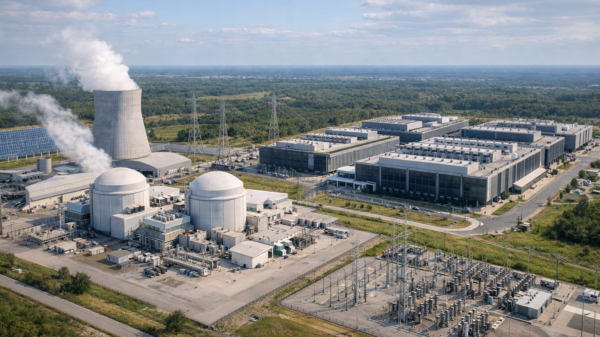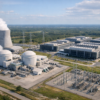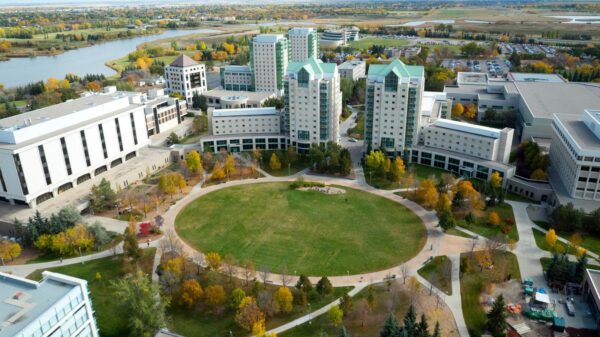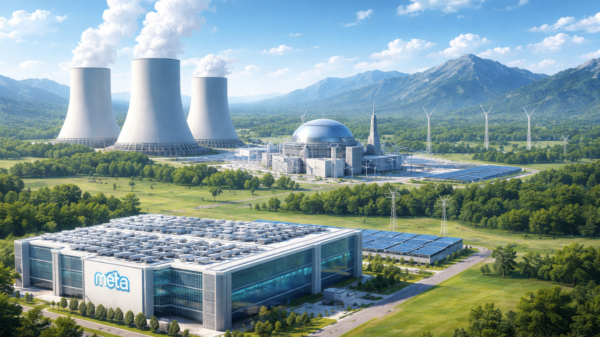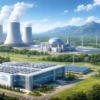The leaders and representatives of 32 countries gathered on Thursday at the Nuclear Energy Summit to discuss and support measures in support of the expansion of nuclear energy to tackle climate change and energy security.
The International Atomic Energy Agency (IAEA) and Belgium jointly organized the summit of nuclear-backing countries. In his opening remarks, IAEA Director General Rafael Mariano Grossi highlighted that it had taken 70 years since US President Eisenhower’s Atoms for Peace United Nations speech for the first nuclear energy summit at the level of national leaders to be convened.
Grossi emphasized the global necessity for clean energy, stressing the importance of collective action. He urged for the facilitation of financing for nuclear projects by international financial institutions, emphasizing the need for safe, secure, and non-proliferation measures. He also declared the end of the nuclear taboo, heralding a new era of commitment to nuclear energy.
The leaders of the countries operating nuclear power used the declaration to reaffirm their commitments as a component of global efforts to reduce greenhouse gas emissions, ensure energy security and promote sustainable development.
Belgium’s Prime Minister Alexander de Croo highlighted his country’s policy shift, emphasizing the decision to extend the operation of nuclear plants instead of closing them. He also emphasized the growing recognition of the necessity of including nuclear alongside renewables to achieve net-zero goals.
Throughout the speeches delivered by attending leaders, there was frequent reference to the importance of energy security and carbon-free energy. Additionally, International Energy Agency Director Fatih Birol asserted that reaching climate targets on time would be impossible without the support of nuclear power.
Read more: ATHA Energy expands into new Canadian territory with 2024 exploration program
Read more: ATHA Energy hires knowledgeable senior vice president of business development
Each nation pledged forward action on nuclear future
The representatives pledged to enhance cooperation with nations opting for nuclear to achieve net-zero emissions by mid-21st century.
Each committed to supporting lifetime extension and construction of nuclear reactors, advancing technological innovation, ensuring safety and security, and promoting a fair global market environment for nuclear power development.
This also included advocacy for increased public and private investments in nuclear energy projects and a call for strengthened support from international financial institutions. Additionally, they emphasized the importance of nuclear education and research to sustain a skilled workforce for the nuclear sector.
On behalf of the United States, John Podesta, the Senior Advisor to the President for Clean Energy, Innovation and Implementation, said the summit was a 21st Century update for the Atoms for Peace vision. He also referenced the commitment by countries at COP28 to triple nuclear energy capacity by 2050, which he said means 200 GW of new nuclear capacity in the USA.
Several industry representative groups also issued a joint statement expressing their welcome for the summit’s outcome and applauding the commitment of the assembled national leaders to developing and deploying nuclear energy to combat climate change, ensure energy security, and foster sustainable economic growth. They declared their readiness to collaborate with governments to deliver the necessary nuclear capacity to address future challenges.
Groups that made statements include the World Nuclear Association, Canadian Nuclear Association, Japan Atomic Industrial Forum, Korea Atomic Industrial Forum, Nuclear Energy Institute, Nucleareurope, and Nuclear Industry Association. They collectively called upon governments to provide long-term policies and clarity for investors, and also to ensure ready access to national and international climate financing for nuclear deployment operations.
.







